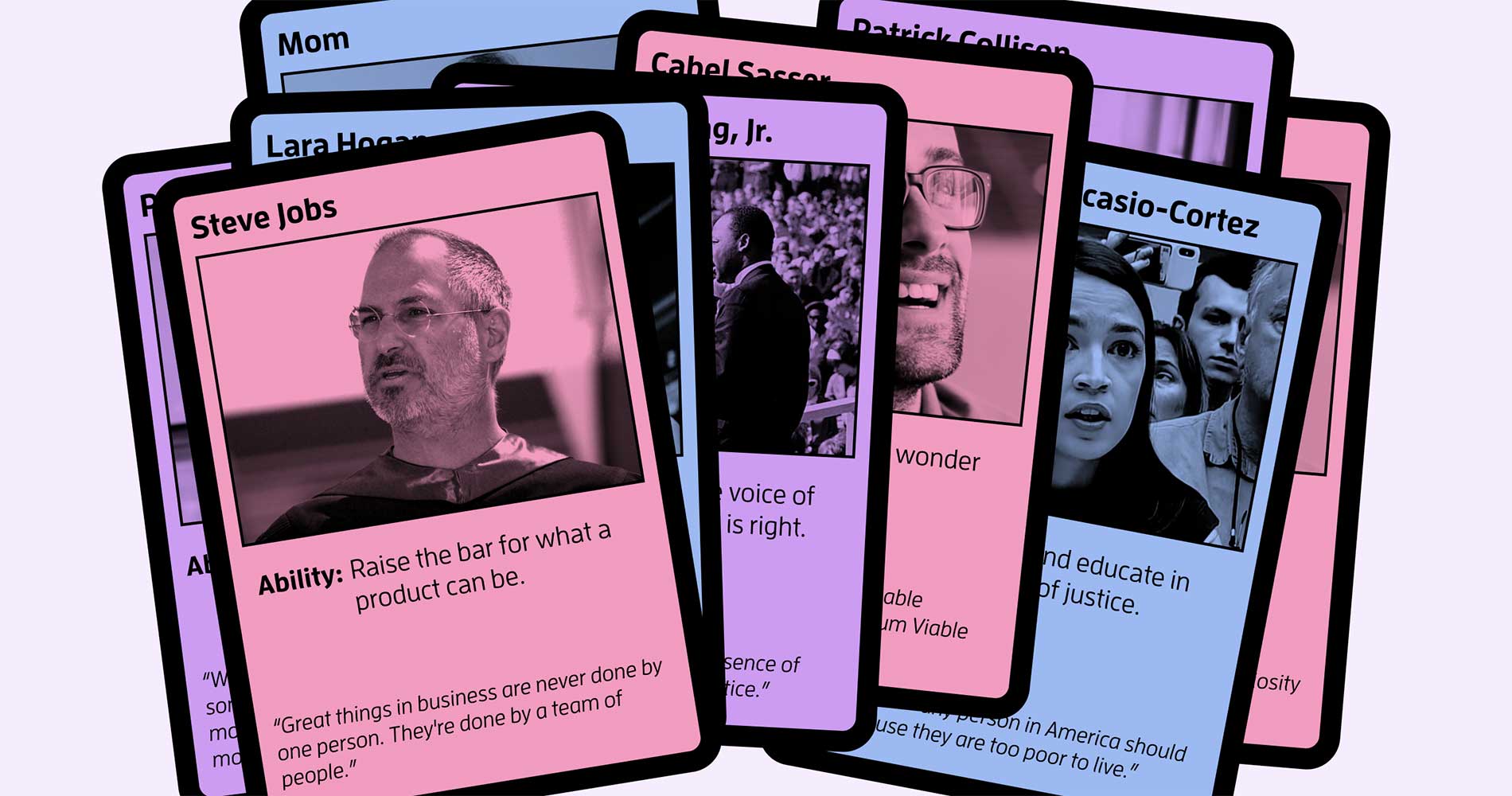It helps to have heroes.
Heroes are people whose stories inspire us. Steve Wozniak, in my mind, used curiosity and audacity to rewrite the rules of what technology can do. Alexandria Ocasio-Cortez pursues truth and change with clarity and tenacity. Marie Kondo systematically seeks joy and simplicity in the spaces she inhabits. Cabel Sasser finds the joy in life and work. Heroes inspire us to strive and be better.
While useful, heroes do pose a trap. We tend to imagine heroes as exemplary, and want to be like them. We lionize them. This often leads to one of two bad outcomes:
- We can’t live up to our ideal of the hero, which feeds our insecurity.
- We learn the hero is flawed, which leaves us disillusioned.
Both of these problems, and the demoralization or even cynical mindset they can fuel, are driven by a flaw in our conception of what a hero should be. A hero is not a singular ideal worth copying. Heroes are ideas, deployable when you need inspiration or motivation of a particular type. You can joyfully Marie Kondo your garage, even if she hasn’t been tidying much herself recently.
Heroes are best collected, then used tactically to keep you growing and moving. Assembled like a deck, if you will.

For illustration purposes only – actually making cards out of your heroes is strictly unnecessary.
Lara Hogan often writes about levelling ourselves up as managers by building what she calls a “Manager Voltron” – a set of leaders you can call on to help you grow as a manager. People with complementary strengths. If you’re struggling to rally a team, fill a role, or work through a complex issue, reaching out to a member of your Voltron can get you the perspective you need.
In a similar way, your heroes – whether or not you know them – can provide incitement and permission for you to excel in a specific way.
When you’re feeling frustrated and ashamed, you might consider how Brené Brown would respond. When you identify a product category that has awful UX, you could ask yourself how Steve Jobs might analyze it. If you’re trying to make a video engaging, you might weigh how Marques Brownlee would approach it.
The point is not to lionize or idolize these people, and it’s certainly not to become them. There are things about you – skills, strengths, and qualities – that each of these heroes would be lucky to have. The point is simply to let parts of certain people’s stories fuel your own.
A great thing about this model is that it’s resilient to the “don’t meet your heroes” problem. A lot of people find it demoralizing when we get to know a hero we long modelled ourselves after, only to realize of course that they’re flawed and/or struggling. While, certainly, people can be so flawed that they shouldn’t be any kind of inspiration, often it’s possible to be inspired by one part of a hero – a skill, an ideal, an idea – and take a critical view of other parts.
Many years ago, I was dismayed to learn that Steve Jobs often treated people poorly. Somebody I’d thought was a hero worthy of emulation was just another flawed CEO. With time, though, I’ve been able to pull apart the useful lessons, the underlying ideas he used and potential he represents, and leave the bullying and other interpersonal weaknesses for what they are: things he succeeded despite, rather than because of.
Another advantage of this pragmatic mindset for heroes is that it makes them easier to switch out. Maybe for years you were inspired by J.K. Rowling’s writing and world-building, then found good reason to instead be inspired by Becky Chambers’ writing and world-building. Maybe you were once motivated by Elon Musk’s bold view of what’s possible, but in recent years have concluded that Patrick Collison’s bold view of what’s possible is more up your alley. These revelations aren’t failures of judgement on your part, but a natural part of refining your deck of heroes.
So consider, whenever you‘re hoping to level up in a specific way, who you might look up to in that way. Who is persistently curious? Who has overcome this obstacle? Who writes clearly and thoughtfully? Who lives with joy and gratitude? Build a little deck of people who motivate you. Refine it, and use it.
Take heroes for what they are: stories we use to better ourselves.